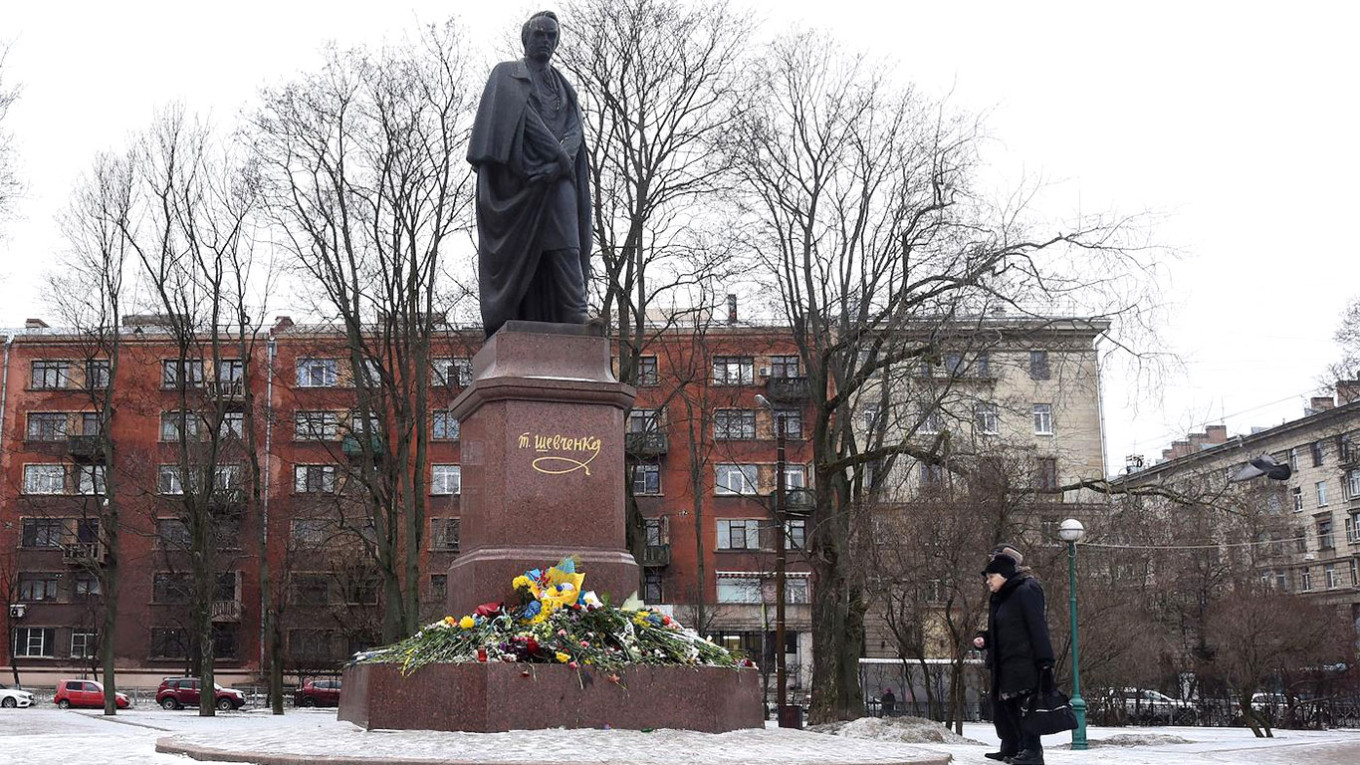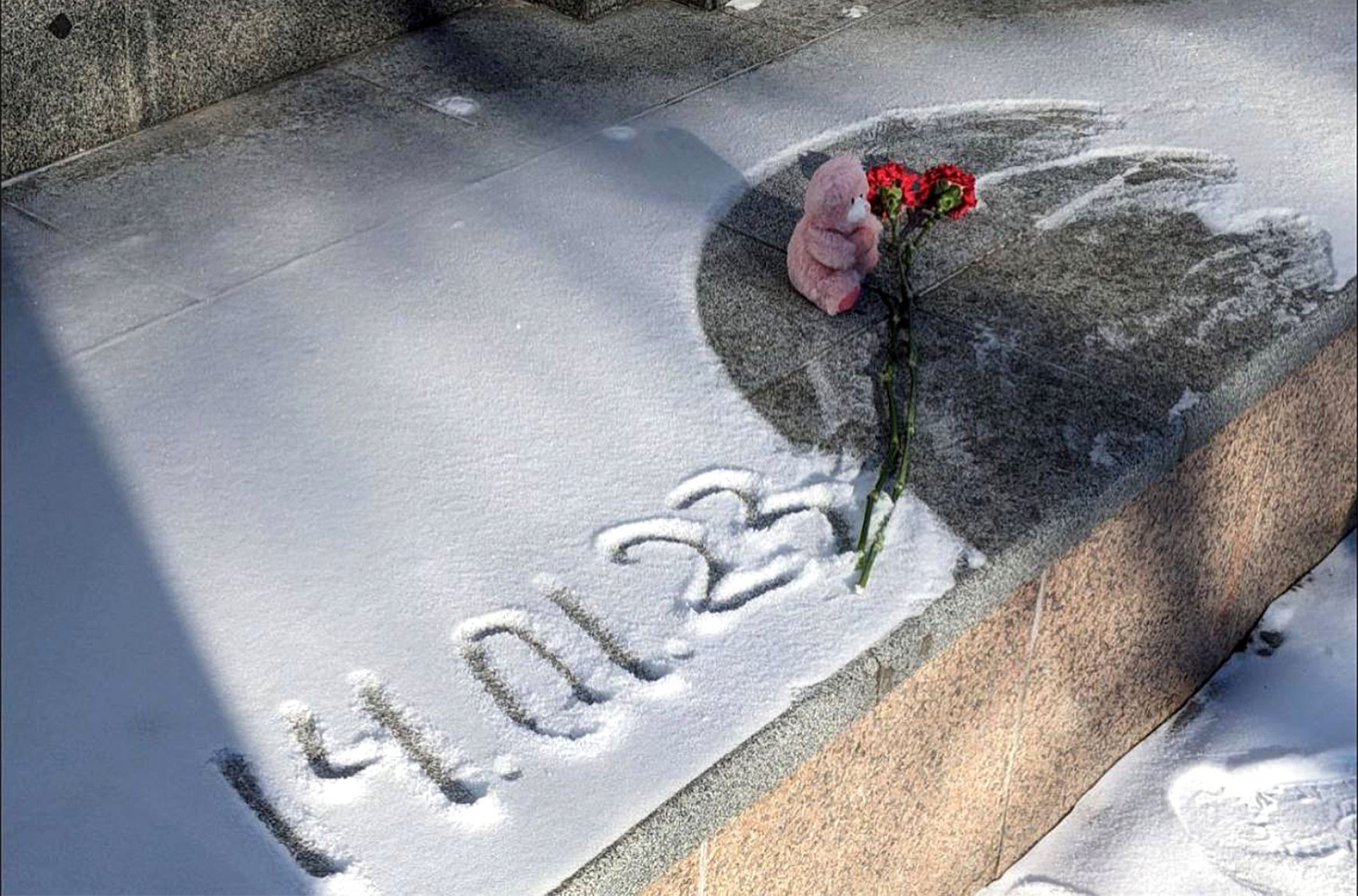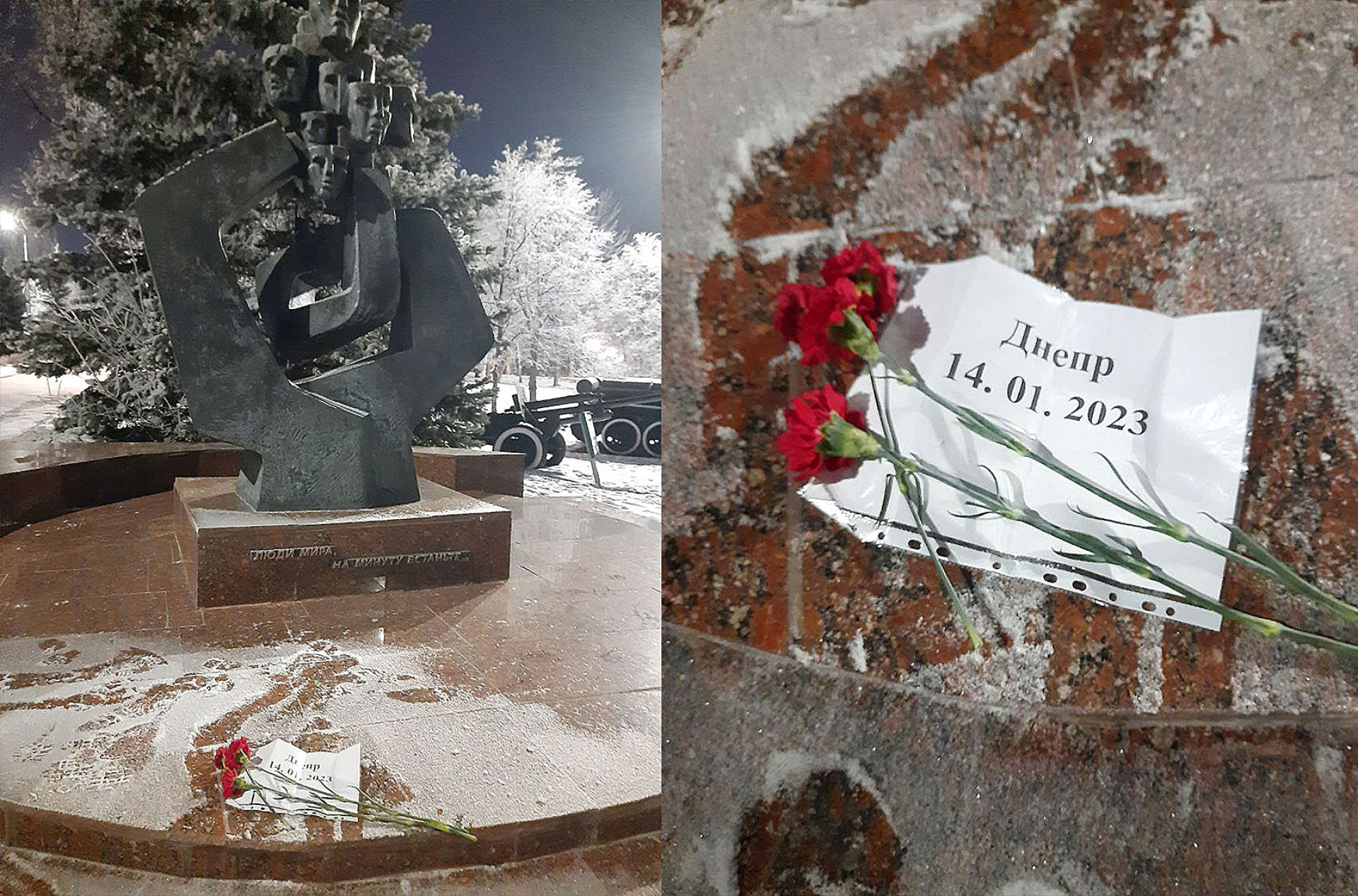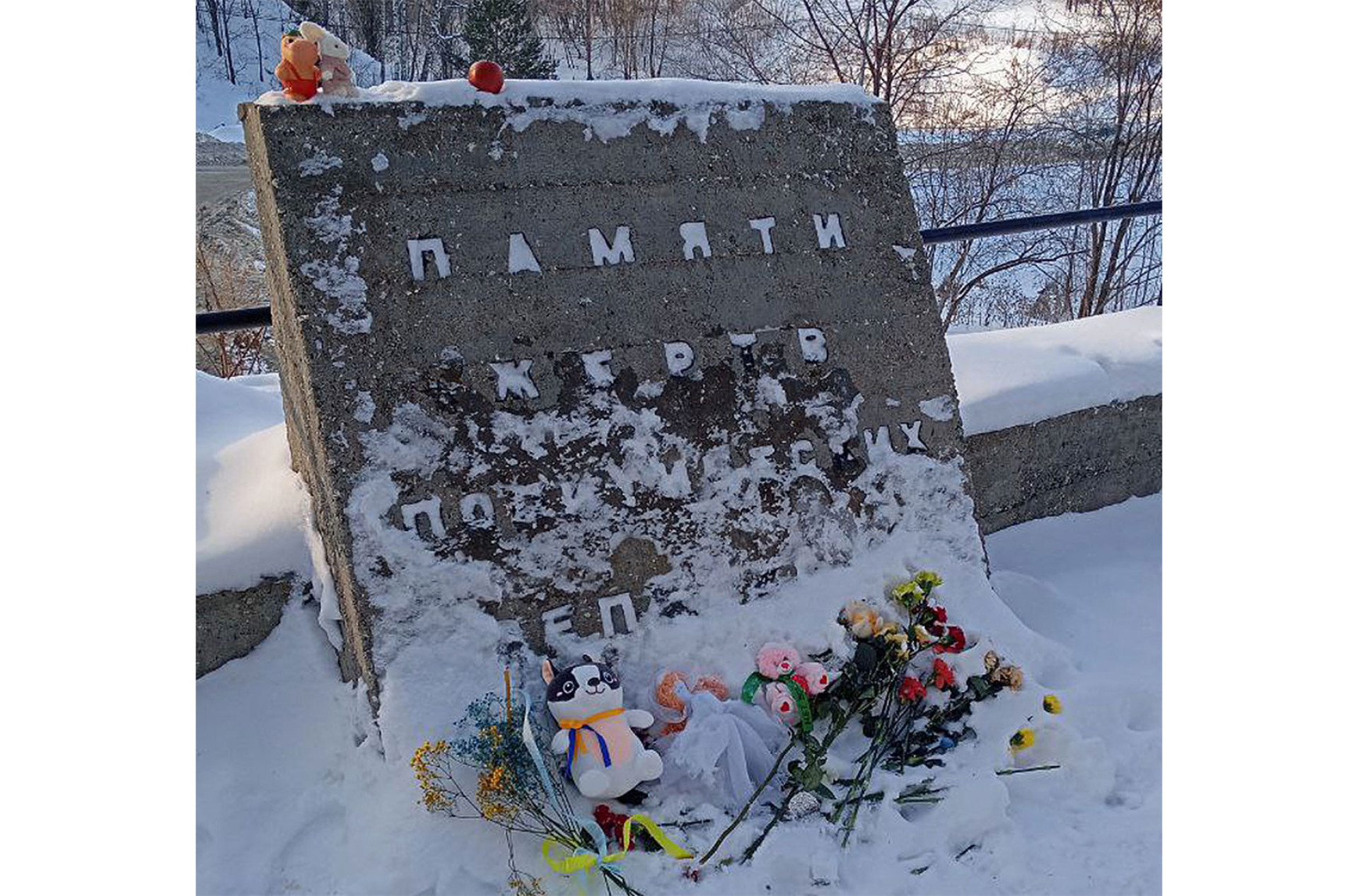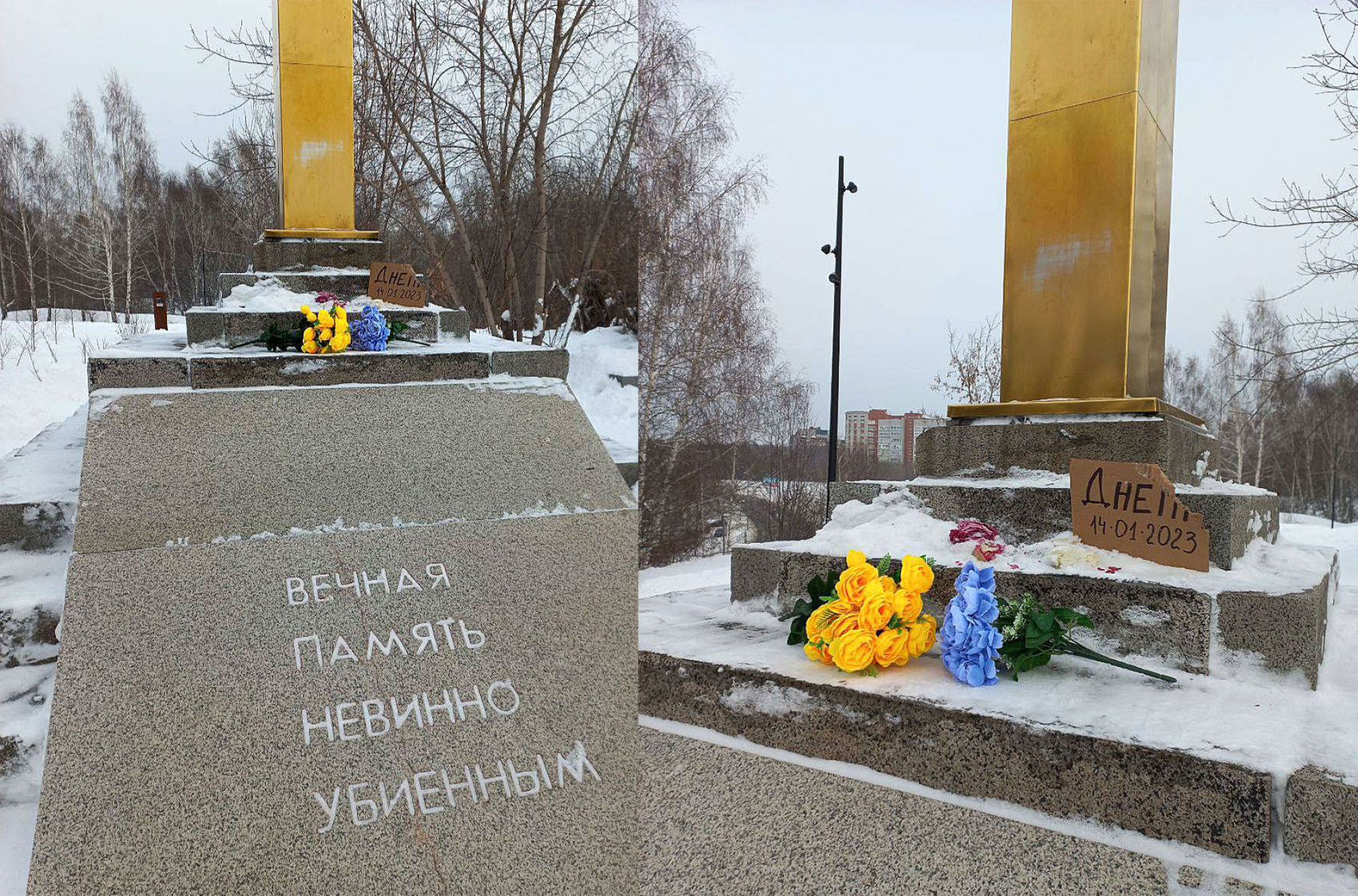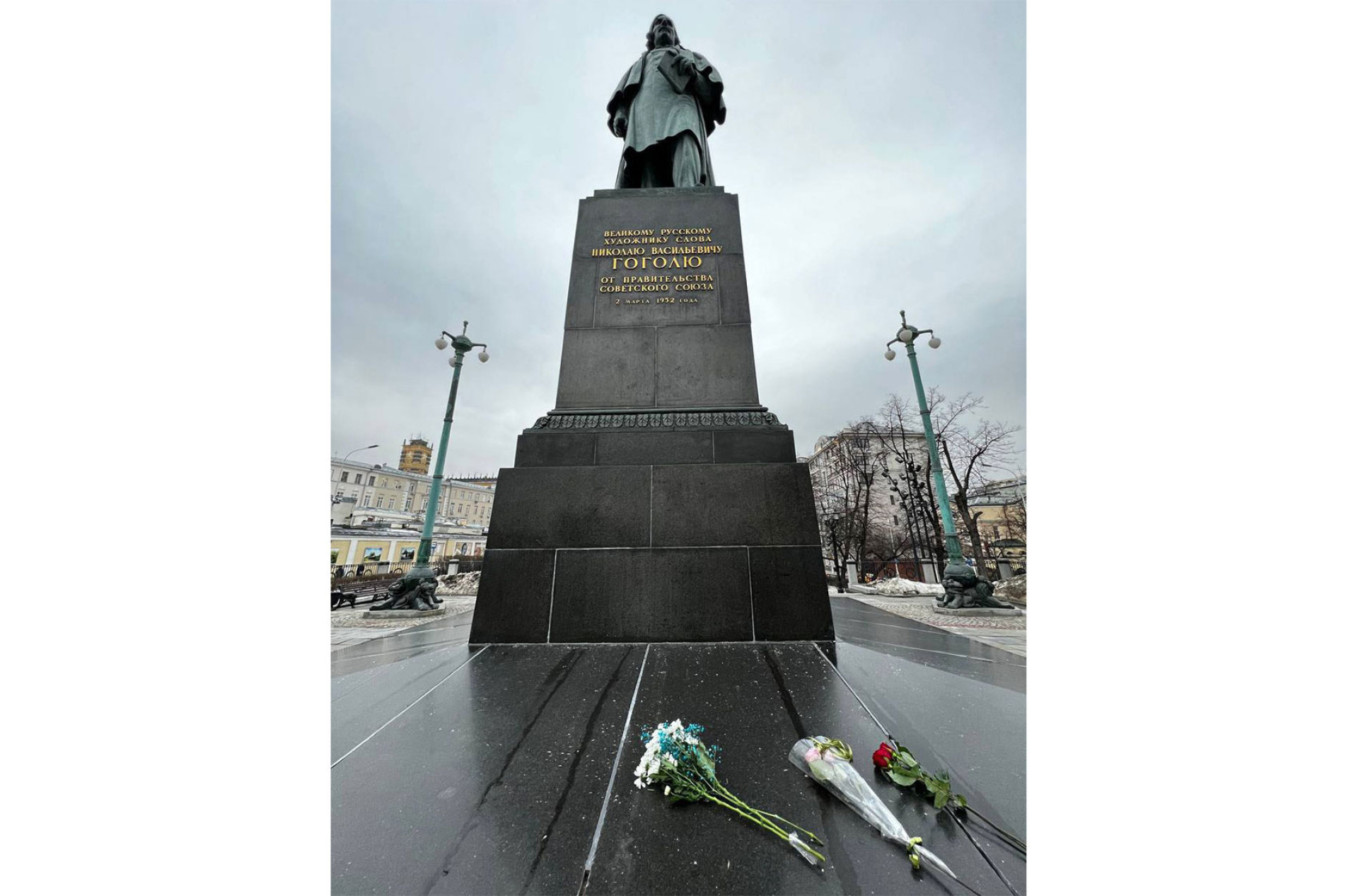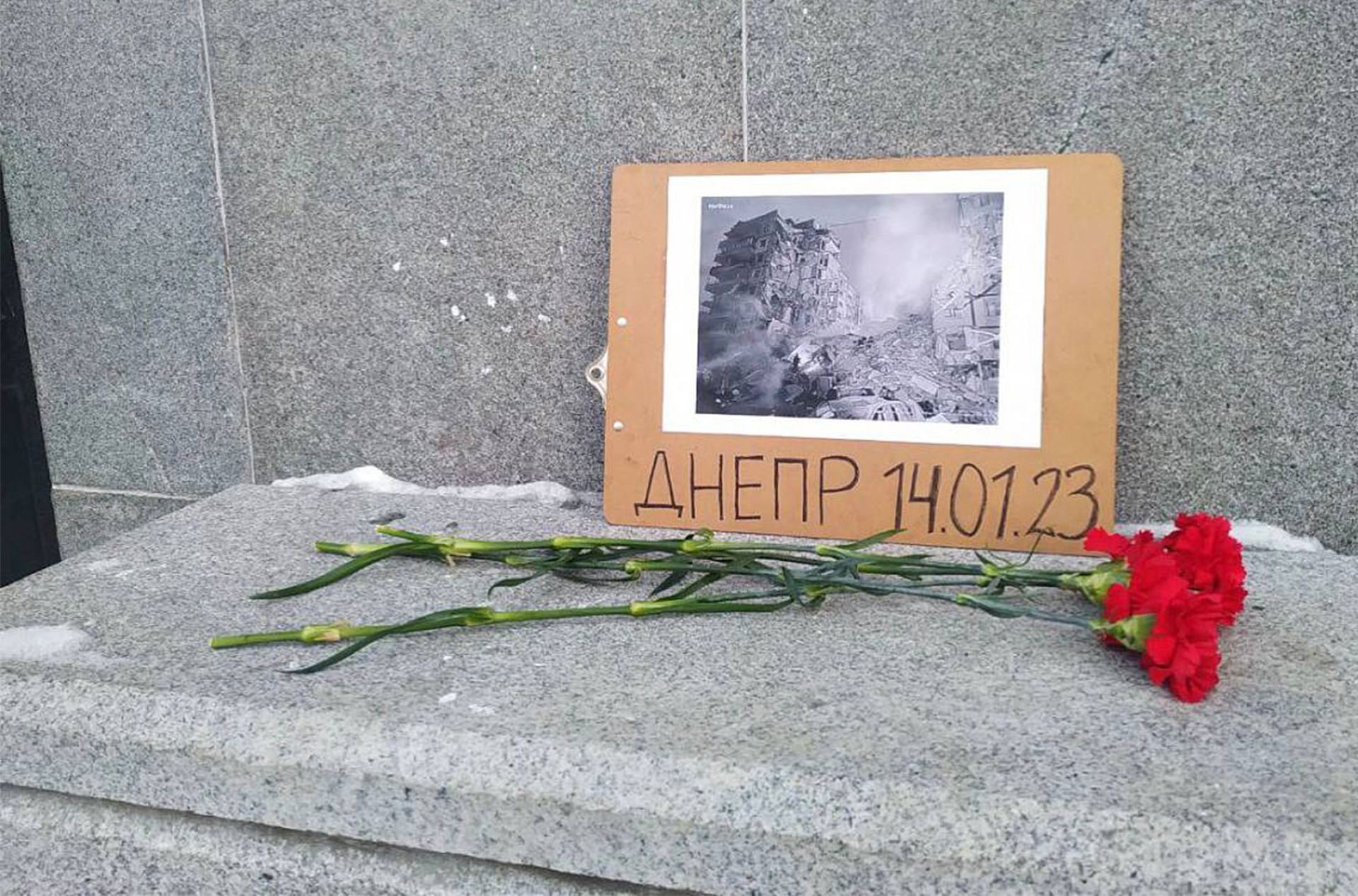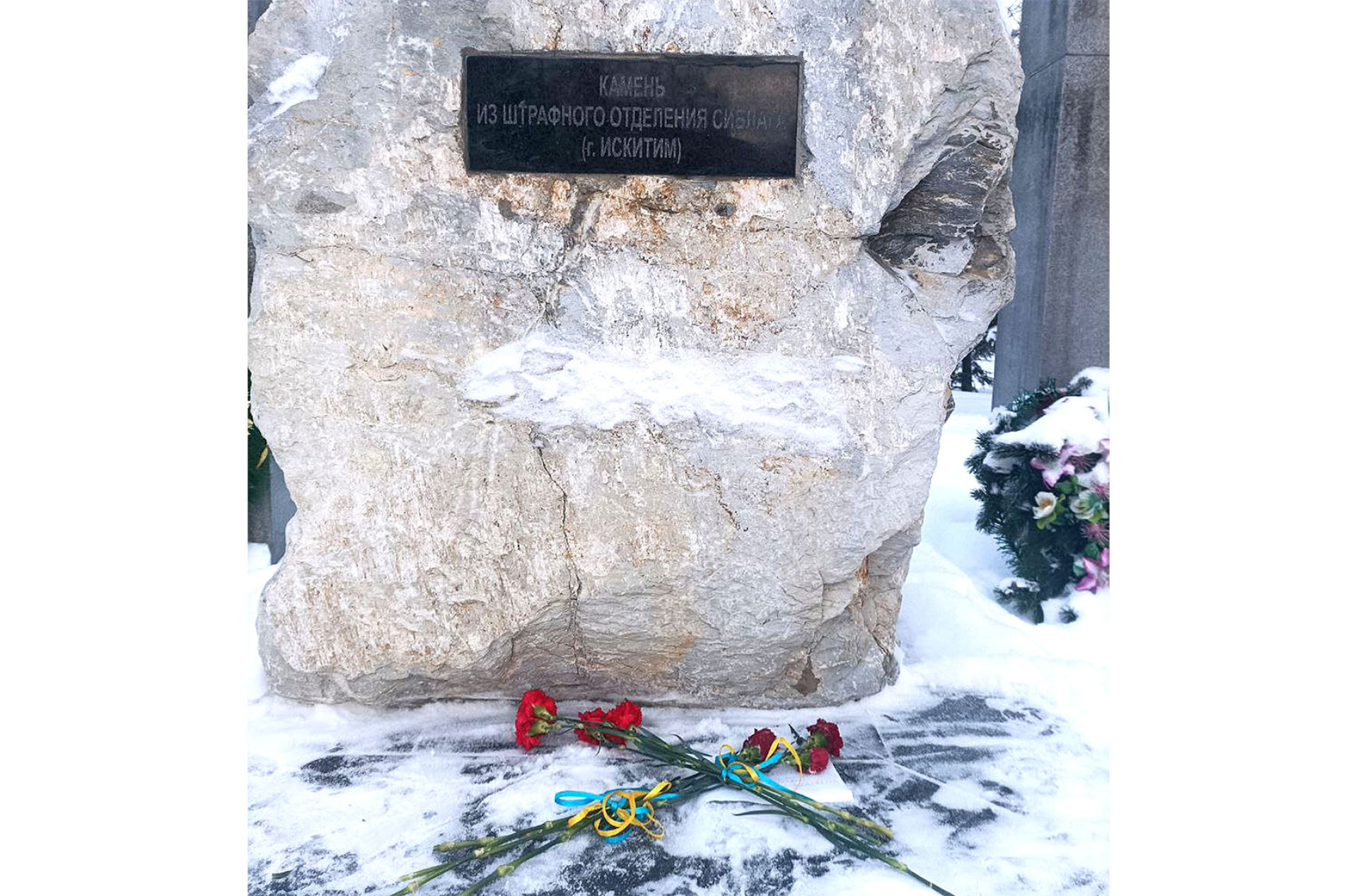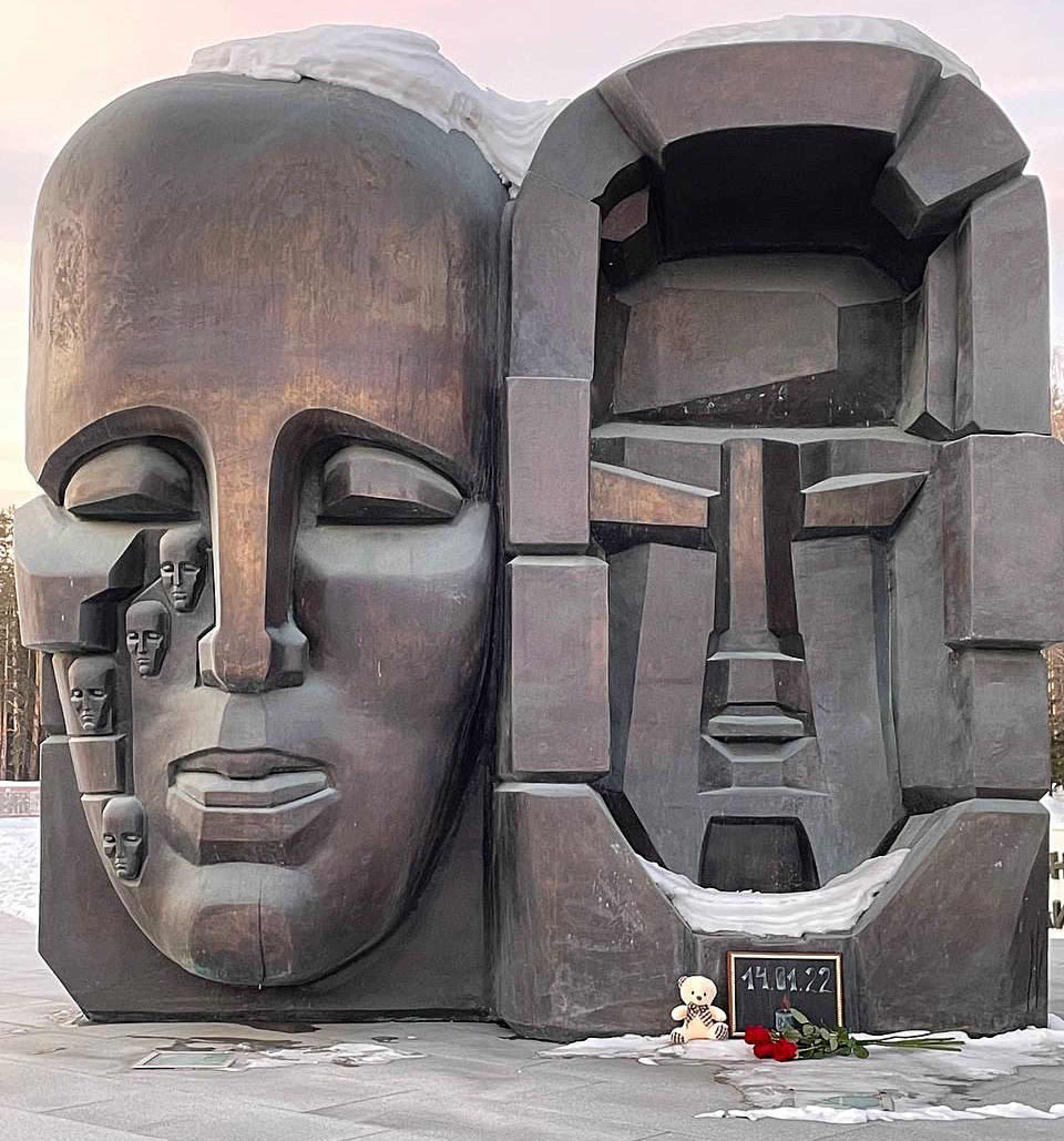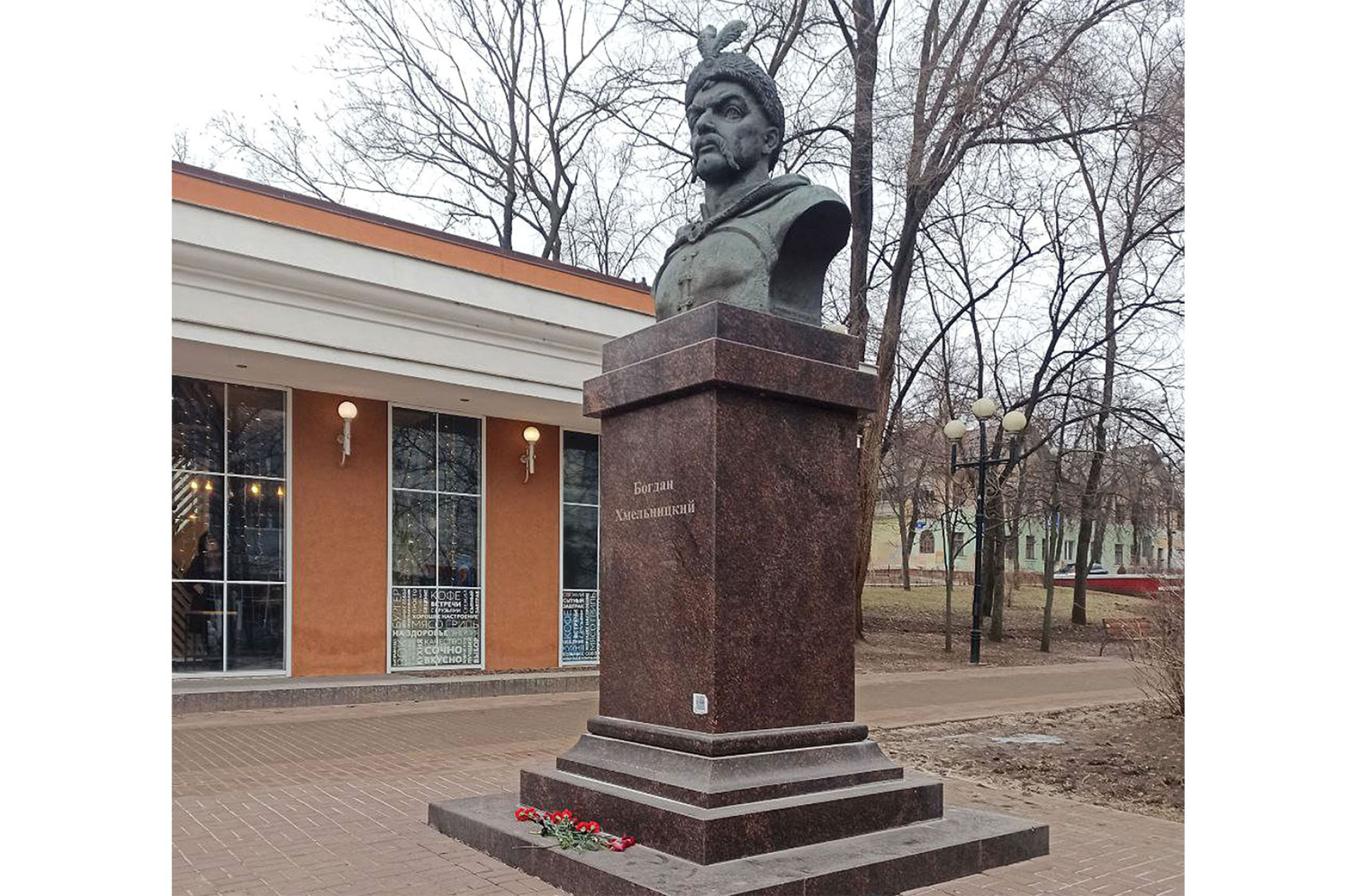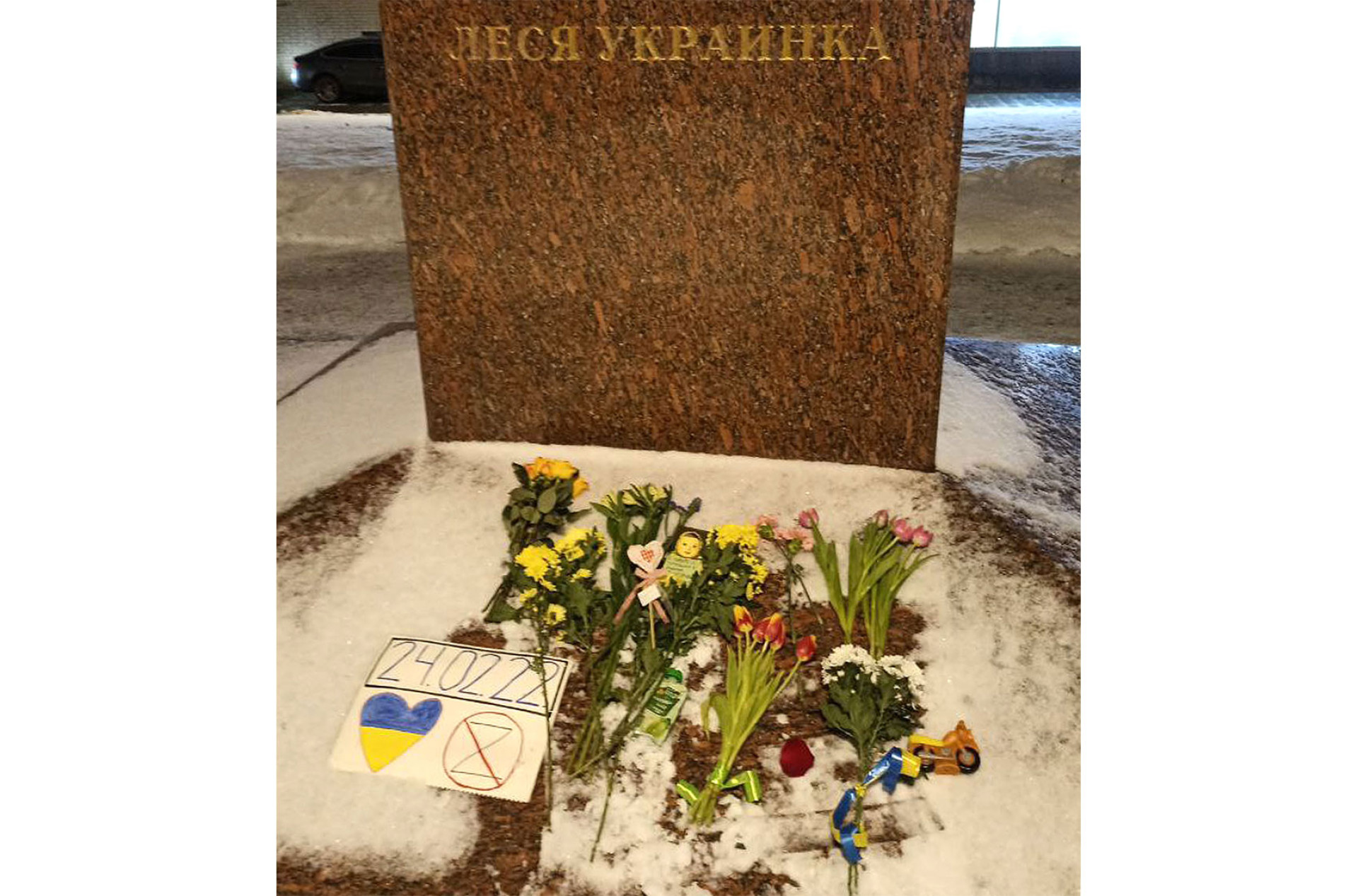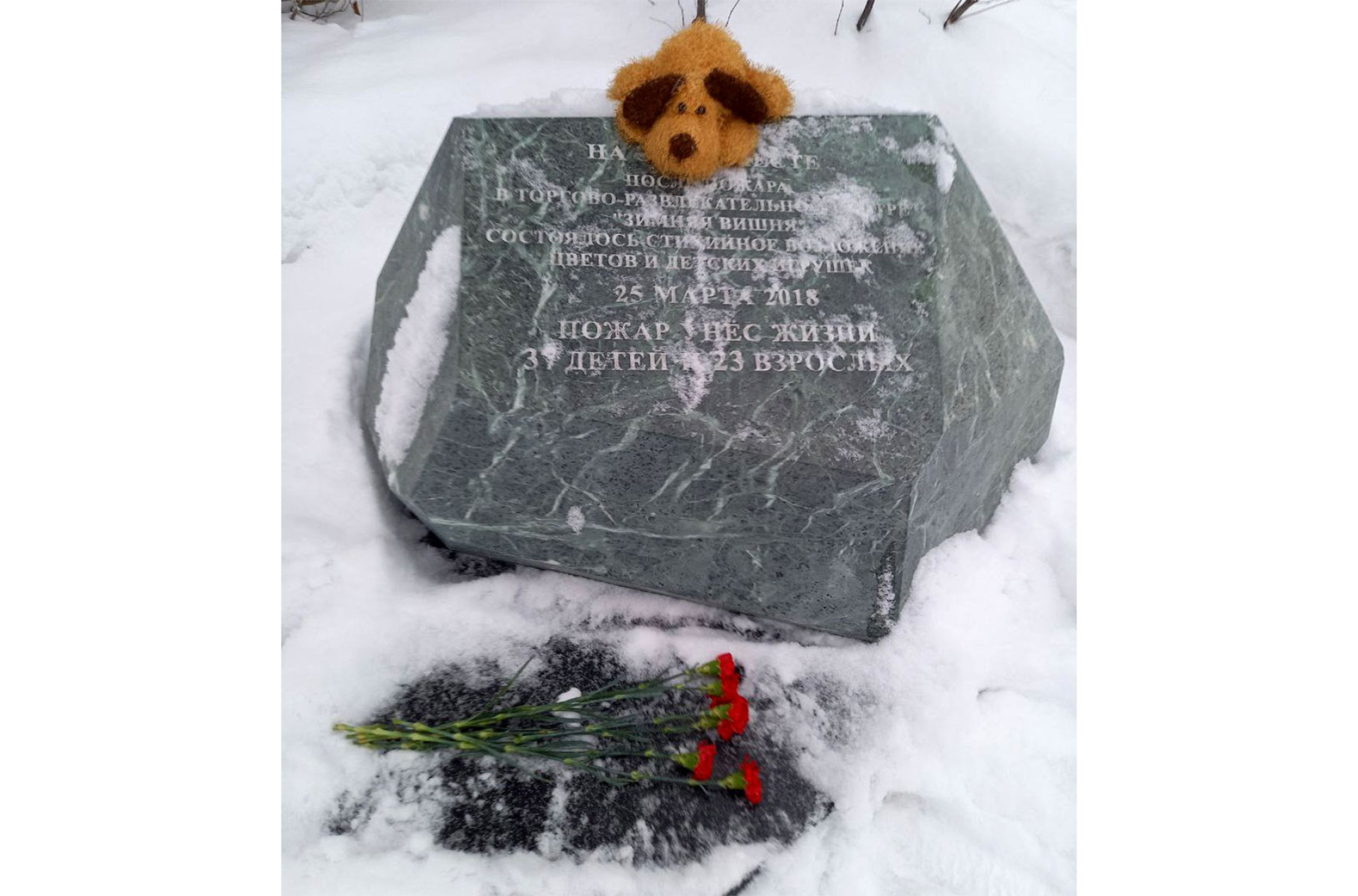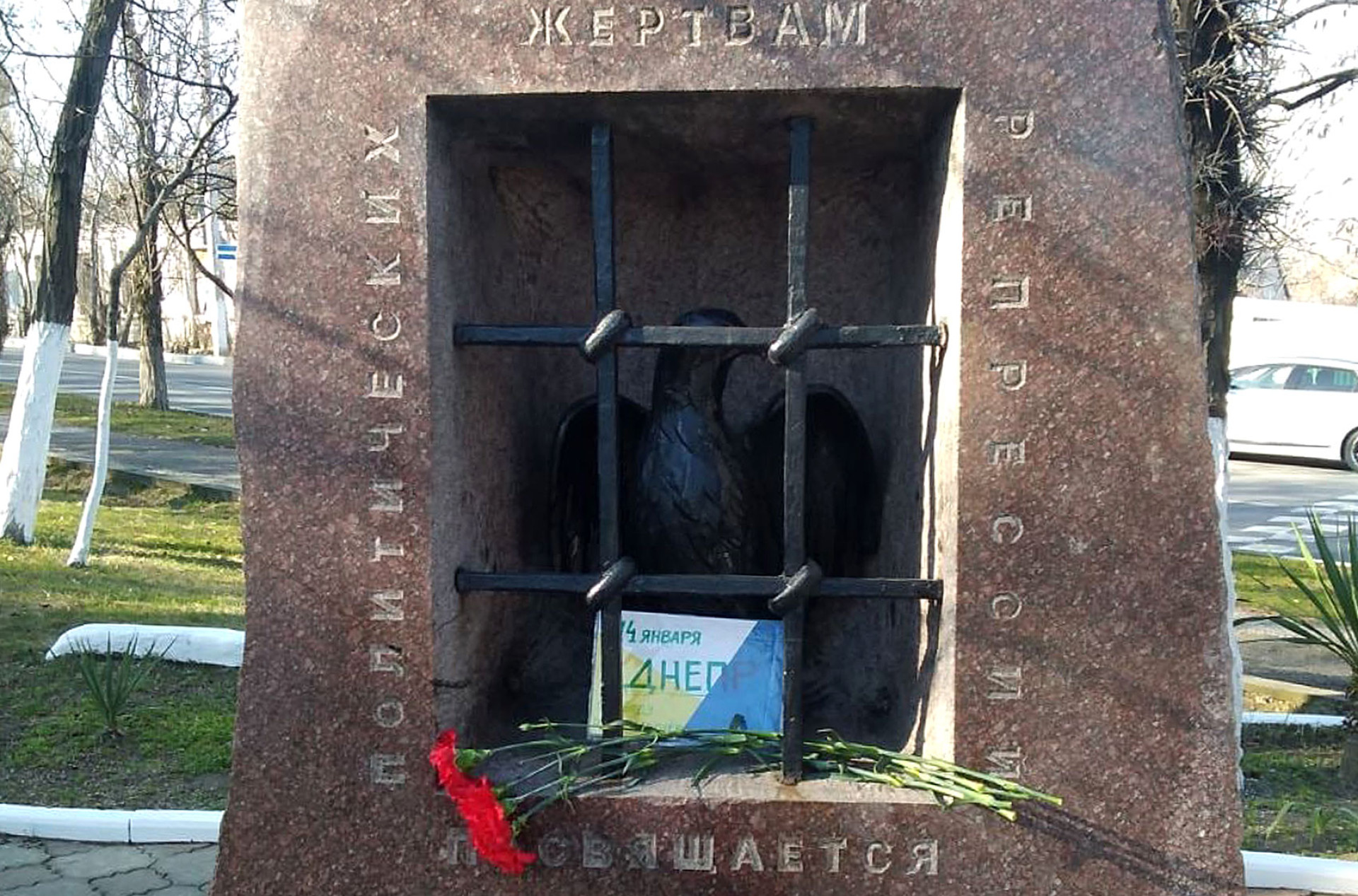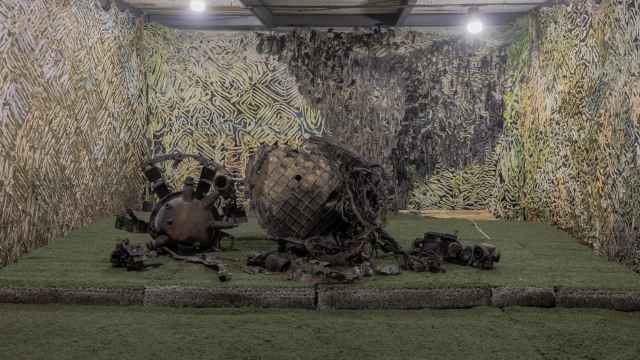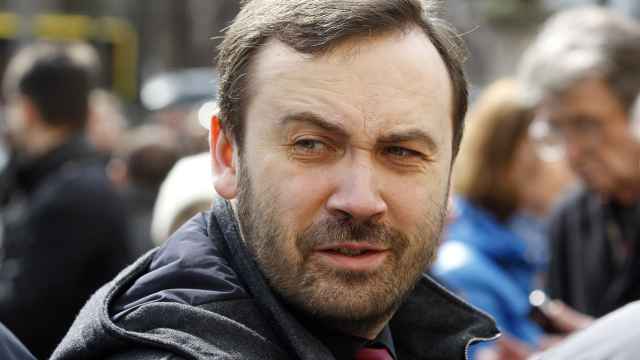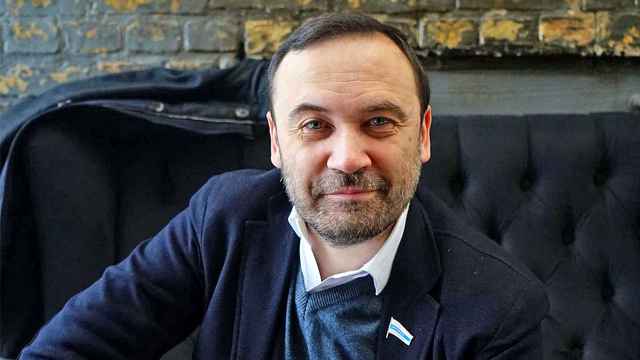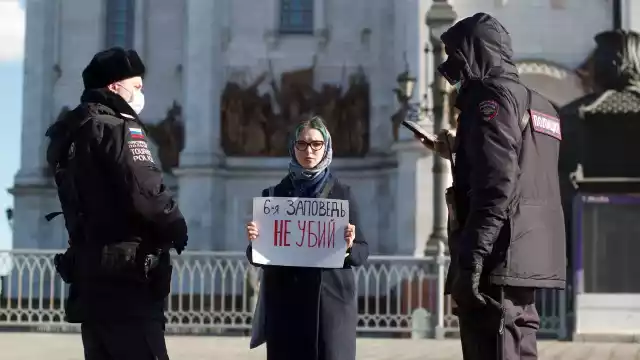Russians continue to memorialize the dozens of Ukrainians killed in last month’s Russian missile strike on the city of Dnipro — one of the deadliest single incidents of Moscow’s invasion — in what has evolved into a new nationwide form of anti-war protest.
Makeshift displays of flowers, stuffed toys and handwritten notes have sprung up in at least 60 cities across Russia, often by statues of Ukrainian poets Taras Shevchenko and Lesya Ukrainka — or by monuments to victims of Soviet-era political repression.
“It’s a statement against the war, not just mourning for the dead people in Dnipro,” said one woman who laid flowers at a memorial in the Siberian city of Novosibirsk.
“I couldn’t stay silent,” she told The Moscow Times in an anonymous interview conducted with the aid of youth opposition movement Vesna.
Images of the destroyed apartment block, civilian casualties and desperate rescue attempts in the aftermath of the Jan. 14 strike in Dnipro served as a shocking reminder of the devastation caused by the Ukraine war and evoked anger and shame among some Russians.
The ongoing tributes to victims of the Dnipro attack are the first nationwide anti-war protests since demonstrations against the country’s “partial” mobilization in September.
They have even earned their own name: “flower protests.”
Almost three weeks after the deaths in Dnipro, new memorials continue to appear.
“I decided to lay flowers at a local memorial to show that not all Russians lack compassion toward Ukrainians,” said a man from the Khanty-Mansiisk autonomous district in another anonymous interview conducted via Vesna.
“I was thinking about the Dnipro attack victims and what it must have been like to be under the rubble.”
Locals reportedly laid yellow roses with blue-and-yellow ribbons — the colors of the Ukrainian flag — in the southern Russian city of Krasnodar on Thursday.
Other memorials include that of the Volga River city of Kazan, where locals placed flowers, photos of the destroyed Dnipro apartment block building and a sign saying: ”Kazan is mourning” by a monument to victims of political repression.
In the North Caucasus city of Vladikavkaz, the memorial consisted of just a handful of red carnations and a child’s toy.
And in western Russia’s Pskov, people laid flowers and lit candles at a monument dedicated to mothers and children.
The attack on Dnipro took place on a Saturday afternoon when, according to Ukrainian officials, a Russian Kh-22 cruise missile — designed to be used against ships — slammed into an apartment building in the east-central Ukrainian city.
Rescue crews worked for days in the ruins of the building, attempting to find survivors. At least 46 people, including six children, were killed and over 80 injured.
Russia has denied carrying out the attack, with officials and pro-Kremlin commentators suggesting the explosion was caused by Ukrainian air defenses.
Many of those taking part in the “flower protests” told The Moscow Times that remembering the Dnipro victims helped them feel like part of a broader anti-war movement.
“It's not for the dead, it's for the living,” said Zakhar, a young man who recently laid flowers at one of the memorials in St. Petersburg.
“We need to know that we are not alone,” he told The Moscow Times.
An unidentified woman from Pskov expressed similar sentiments.
“I feel incredible shame for my country and the inability to help in any way, except for such small gestures,” she said in an anonymous interview conducted via Vesna.
“People in my city who are against the war should realize that there are many of us.”
Russia’s “flower protesters” have not faced the same level of police crackdown as those faced by anti-war Russians who took to the streets immediately after last year’s invasion and in the wake of President Vladimir Putin’s September mobilization order.
But at least seven people are reported to have been detained.
Yekaterina Varenik, 26, was jailed for 12 days last month for ignoring police orders while holding up a sign reading “Ukraine is not our enemy” by a memorial in central Moscow.
“Both Yekaterina and I believe that this is a political persecution,” her lawyer Vladimir Zhilkin told The Moscow Times.
“They want to show that we should be afraid of the police and that we cannot speak out against the so-called military operation,” Zhilkin said, referring to the Kremlin’s chosen term for the war.
In some cases, the police have been patrolling near the makeshift memorials.
“I got scared when I saw police officers,” one Muscovite, who went to the statue of Lesya Ukrainka three times to pay her respects, told The Moscow Times.
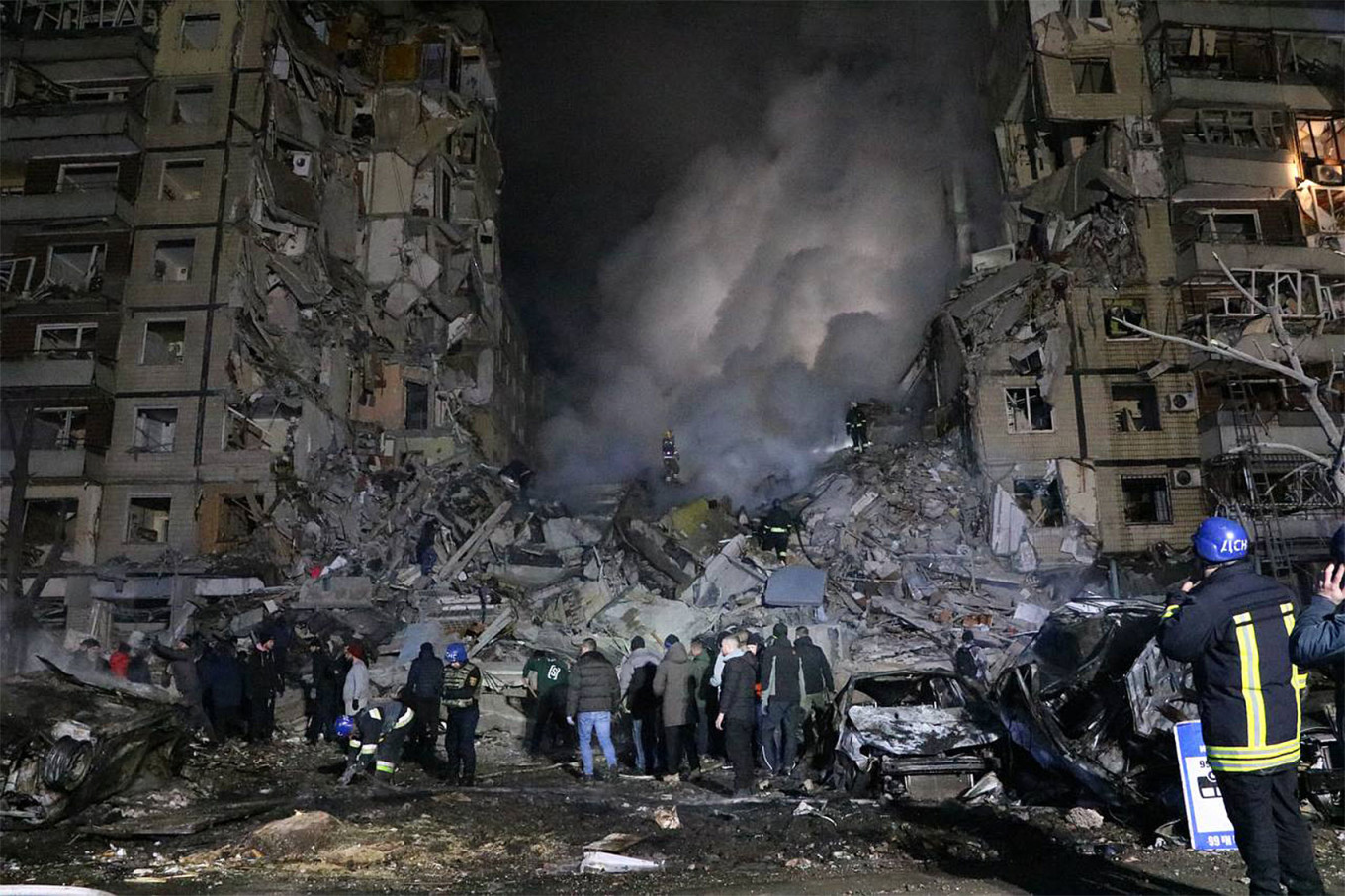
Local authorities in a few cities have even removed flowers — at least three of St. Petersburg’s seven improvised memorials were cleared away by municipal workers.
The persistence of the tributes to the Dnipro victims is a sign of deep dissatisfaction with authorities, according to anthropologist Alexandra Arkhipova.
“Makeshift memorials appear when people feel some kind of injustice,” Arkhipova told The Moscow Times.
“It’s an attempt to say: ‘I express my grief and I protest against the one who caused this grief.’”
This is not the first time that such memorials have been seen in Russia, with flowers laid at the Ukrainian Embassy in Moscow and other sites in the wake of the invasion last year.
And a temporary memorial of flowers and photos for opposition leader Boris Nemtsov, who was assassinated in 2015 on a bridge near the Kremlin, quickly became a permanent fixture that has been maintained by his supporters ever since.
The response to the Dnipro attack, however, has been far more widespread and shows no signs of ending.
“It was beyond my strength to stay silent; I would have hated myself for such cowardice or indifference,” said a woman from the central Russian city of Yoshkar-Ola, who laid flowers at her local memorial, in an interview conducted through Vesna.
“It’s not a heroic act, but even such actions are valuable in today’s Russia.”
A Message from The Moscow Times:
Dear readers,
We are facing unprecedented challenges. Russia's Prosecutor General's Office has designated The Moscow Times as an "undesirable" organization, criminalizing our work and putting our staff at risk of prosecution. This follows our earlier unjust labeling as a "foreign agent."
These actions are direct attempts to silence independent journalism in Russia. The authorities claim our work "discredits the decisions of the Russian leadership." We see things differently: we strive to provide accurate, unbiased reporting on Russia.
We, the journalists of The Moscow Times, refuse to be silenced. But to continue our work, we need your help.
Your support, no matter how small, makes a world of difference. If you can, please support us monthly starting from just $2. It's quick to set up, and every contribution makes a significant impact.
By supporting The Moscow Times, you're defending open, independent journalism in the face of repression. Thank you for standing with us.
Remind me later.



